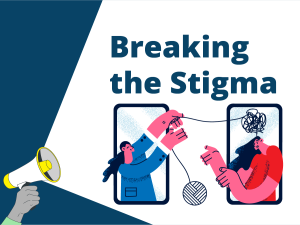In Kenya, we often experience significant changes in weather patterns, which can have a significant impact on our mental health. One such condition that affects individuals during the colder, darker months is Seasonal Affective Disorder (SAD).
SAD is a type of depression that occurs in seasonal patterns, usually during fall and winter. Its symptoms can range from mild to severe and can include low mood, lack of energy, appetite changes, and difficulty concentrating.
It’s essential to recognize the challenges that SAD presents and seek appropriate support to manage its symptoms effectively. By raising awareness about SAD and the impact it has on our mental health, we can encourage individuals to take proactive steps towards their well-being.
Key Takeaways
- Seasonal Affective Disorder is a type of depression that occurs in seasonal patterns, typically during fall and winter months.
- Symptoms of SAD can range from mild to severe and can include low mood, lack of energy, appetite changes, and difficulty concentrating.
- Raising awareness about SAD and its impact on mental health can help individuals take proactive steps towards their well-being.
- It’s essential to seek appropriate support to manage SAD symptoms effectively.
- By taking action and seeking support, individuals in Kenya can navigate SAD and improve their overall wellness.
What is Seasonal Affective Disorder?
Seasonal Affective Disorder, commonly known as SAD, is a type of depression that typically occurs during specific seasons, usually in winter or less commonly in summer. In Kenya, SAD affects many individuals and is often overlooked due to the lack of awareness and education on mental health.
People with SAD experience symptoms similar to those of depression, such as feeling sad, hopeless, lethargic, or irritable. However, the symptoms of SAD occur only during specific seasons and tend to recur around the same time each year.
Unlike other forms of depression, SAD is linked to changes in the seasons and variations in natural light exposure. In Kenya, where the climate and daylight hours vary from region to region, there is a higher prevalence of SAD in areas with shorter daylight hours and harsher winter weather.
Due to its unique nature, SAD can be difficult to diagnose and manage. Seeking guidance from mental health professionals is crucial for individuals experiencing symptoms of SAD in Kenya, especially during the high-risk seasons.
Understanding the Impacts of SAD
In Kenya, Seasonal Affective Disorder (SAD) can have serious impacts on mental health. Individuals with SAD may experience a range of emotional, physical, and cognitive symptoms.
Emotionally, SAD can cause feelings of sadness, hopelessness, and despair. It may also lead to social withdrawal and difficulty forming and maintaining relationships.
Physically, SAD can cause changes in appetite, leading to weight gain or loss. It may also cause fatigue and low energy levels.
Cognitively, SAD can lead to difficulty concentrating, memory problems, and decreased motivation.
It’s important for individuals with SAD to seek help and support in managing these impacts on their mental health. There are coping strategies and therapeutic interventions that can help manage symptoms and improve overall well-being.
Factors Contributing to Seasonal Affective Disorder in Kenya
Seasonal Affective Disorder (SAD) is a type of depression that affects many people worldwide, including Kenya. While the exact causes of SAD are unknown, several factors contribute to its development and severity.
Climate
Kenya experiences two rainy seasons and two dry seasons, with varying temperature ranges throughout the year. The colder temperatures and shorter daylight hours during the rainy months may trigger SAD symptoms in some individuals, especially those who are sensitive to changes in weather.
Daylight Hours
With Kenya located near the equator, there are relatively consistent daylight hours throughout the year. However, during the rainy seasons, there may be prolonged periods of cloudy and overcast weather, reducing exposure to natural light. This lack of sunlight can disrupt circadian rhythms and affect mood, contributing to SAD symptoms.
Environmental Factors
Other environmental factors, such as air pollution and noise pollution, may also contribute to SAD in Kenya. These factors can cause stress and impact overall well-being, exacerbating depression and anxiety symptoms.
Genetics
While research on SAD genetics is limited, there may be a genetic predisposition to the disorder. Individuals with a family history of depression or SAD may be more likely to develop the disorder themselves, especially in combination with environmental triggers.
Understanding the factors that contribute to Seasonal Affective Disorder in Kenya can help individuals take proactive steps to manage their symptoms. In the next section, we will explore coping strategies for SAD in Kenya.
Coping Strategies for Seasonal Affective Disorder in Kenya
Dealing with Seasonal Affective Disorder (SAD) can be challenging, but there are several coping strategies that individuals in Kenya can implement to manage its symptoms. Here are some practical tips:
1. Light Therapy
Light therapy involves sitting in front of a special light box for a certain amount of time each day. The light mimics natural sunlight, which can help regulate mood and improve symptoms of SAD.
2. Talk Therapy
Talk therapy, also known as psychotherapy, can help individuals with SAD manage their symptoms. A therapist can provide support, guidance, and coping strategies to improve mental health and overall well-being.
3. Medication
In some cases, medication may be prescribed to manage symptoms of SAD. Antidepressants and mood stabilizers can be effective in improving mood, regulating sleep, and reducing anxiety.
4. Exercise
Regular physical activity can help improve symptoms of SAD. Engaging in activities such as walking, cycling, or dancing can help boost mood, increase energy levels, and reduce stress.
5. Healthy Diet
Eating a healthy and balanced diet can also help manage symptoms of SAD. It is important to consume nutrient-rich foods such as fruits, vegetables, lean proteins, and whole grains to support overall health.
6. Sleep Hygiene
Maintaining good sleep hygiene can help regulate mood and improve energy levels. Creating a consistent sleep schedule, avoiding stimulants such as caffeine, and creating a calming bedtime routine can all contribute to better sleep.
7. Mindfulness Practices
Mindfulness practices such as meditation, deep breathing, and yoga can help manage stress levels and improve mental wellness. Practicing these techniques regularly can help individuals with SAD manage their symptoms and improve overall well-being.
Seeking Professional Help
At times, coping with Seasonal Affective Disorder can be overwhelming, and self-help strategies may not provide sufficient relief. Seeking professional help is a crucial step towards managing the challenges associated with SAD.
It is important to recognize that seeking help for a mental health challenge is not a sign of weakness. Mental health professionals such as psychiatrists, psychologists, and counselors are trained to provide support and guidance for individuals experiencing mental health challenges, including Seasonal Affective Disorder.
If you are experiencing symptoms of SAD, you can seek professional help through a variety of channels. A good place to start is to speak with a healthcare provider or seek a referral from your medical practitioner. You can also access mental health services through community centers, support groups, and mental health organizations such as the Kenya Mental Health Alliance.
When seeking professional help for SAD, it is vital to find a mental health professional who is experienced in treating and managing seasonal mood disorders. Be open and honest with your provider about your symptoms and any medications you are taking. This will help them understand your condition and develop an effective treatment plan that may include medication, therapy, or a combination of both.
Remember, taking the step to seek professional help is a crucial one towards improving your mental health and overall well-being.
Coping Strategies for SAD
Seasonal Affective Disorder in Kenya can be challenging to manage, but there are strategies that individuals can employ to cope with its symptoms and improve overall mental well-being. Below, we have highlighted some practical coping strategies:
- Therapeutic interventions: Seeking out therapy can be an effective way to manage symptoms of SAD. Professional therapy options, such as cognitive-behavioral therapy, can help individuals recognize and change negative thought patterns and behaviors that contribute to SAD.
- Lifestyle changes: Engaging in regular physical activity, optimizing exposure to natural light, and maintaining a healthy diet can support overall mental well-being and help alleviate symptoms of SAD.
- Self-care practices: Setting aside time for relaxation, practicing stress-management techniques, and engaging in enjoyable activities can help reduce the impact of SAD on daily life.
It is essential to remember that coping strategies are not one-size-fits-all. It may take some trial and error to find which strategies work best for individual needs.
Additionally, seeking support from loved ones, and participating in mental health advocacy initiatives can provide a sense of community and belonging, which can be beneficial for those managing SAD.
Takeaways:
- Therapy can be an effective way to manage SAD symptoms.
- Engaging in regular physical activity and optimizing exposure to natural light can mitigate the impact of SAD.
- Individual self-care practices can reduce the impact of SAD on daily life.
- Connecting with others and engaging in mental health advocacy initiatives can provide a sense of community and belonging.
Importance of Mental Health Awareness
At our core, we believe that mental health awareness is essential for building a healthier Kenya. This is particularly important when it comes to Seasonal Affective Disorder (SAD), as it is often overlooked or misunderstood.
By developing a better understanding of SAD and mental health challenges in general, we can reduce stigma, promote open dialogue, and encourage individuals to seek help when needed. Through education and awareness-raising initiatives, we can work towards creating a culture of mental wellness in Kenya.
It is important to recognize SAD as a legitimate mental health condition and acknowledge the impact it can have on an individual’s well-being. This helps to reduce the shame and isolation that individuals with SAD may feel, and empowers them to seek the support they need.
Many people in Kenya may not be aware of the resources available to them for mental health support. By promoting mental health awareness, we can help individuals access these services, whether it be therapy, support groups, or helplines.
Ultimately, mental health awareness is about creating a supportive and inclusive society that prioritizes the well-being of its members. We can all play a role in this by educating ourselves and others, advocating for mental health policies and resources, and promoting a culture of self-care and compassion.
The Role of Community Support
At times, navigating Seasonal Affective Disorder can be overwhelming and challenging. However, it is important to remember that you do not have to cope alone. By seeking community support, you can find comfort and encouragement from those who understand what you are going through.
Connecting with others who are also managing mental health challenges can help reduce feelings of isolation and provide a sense of belonging. Support groups, either in-person or online, can be a valuable resource for individuals with Seasonal Affective Disorder, offering a safe and confidential space to share experiences, offer and receive advice and support, and build meaningful connections with others.
In addition to support groups, seeking support from loved ones, such as family and friends, can also be beneficial. Talking about your experiences and emotions with trusted individuals can help relieve stress, increase feelings of happiness and foster a sense of belonging.
Communities play an essential role in mental health awareness and advocacy. By participating in mental health initiatives and events, you can help raise awareness about Seasonal Affective Disorder and other mental health challenges in Kenya. You can also play an active role in reducing the stigma surrounding mental health and promoting overall mental well-being.
Promoting Mental Health and Wellness in Kenya
While Seasonal Affective Disorder can be a challenging mental health condition to navigate, there are holistic approaches to promoting overall mental health and wellness in Kenya.
At its core, wellness is about achieving a state of balance and harmony in all aspects of one’s life, including physical, emotional, social, and spiritual health. Prioritizing wellness can help individuals build resilience, manage stress, and improve their overall quality of life.
- Mental Health and Wellness: By acknowledging the importance of mental health and wellness, individuals in Kenya can cultivate habits that promote overall well-being. This includes adopting healthy coping mechanisms, maintaining social connections, and accessing mental health resources when needed.
- Wellness Practices: Incorporating wellness practices into one’s daily routine can help support mental health and overall well-being. Strategies such as mindfulness meditation, regular exercise, and getting enough sleep can help reduce stress, improve mood, and promote emotional resilience.
- Mental Health Awareness: Raising awareness about the importance of mental health can help reduce stigma and promote early intervention. By prioritizing mental health awareness in Kenya, individuals can access the resources and support they need to manage mental health challenges and improve their overall well-being.
Conclusion
Prioritizing mental health and wellness is essential for individuals in Kenya to lead balanced, fulfilling lives. By incorporating healthy habits and seeking support when needed, individuals can navigate mental health challenges such as Seasonal Affective Disorder and promote overall well-being.
Taking Action for Improved Mental Health
At this point, we hope that this article has provided you with a better understanding of Seasonal Affective Disorder and its impacts on mental health. It is essential to take action towards improving your mental health, especially if you are experiencing any challenges. Here are some steps you can take:
Self-Advocacy
One of the most important things you can do for yourself is to advocate for your mental health. This means recognizing your symptoms, seeking professional help if needed, and being proactive about managing your mental well-being.
Regular Mental Health Check-Ups
Just as you would go for regular physical check-ups, it is important to prioritize regular mental health check-ups. These can help you to monitor your mental well-being, access support when needed, and stay on track with your mental health goals.
Implement Coping Strategies
As discussed earlier in this article, there are many coping strategies you can implement to manage Seasonal Affective Disorder. These may include therapy, lifestyle changes, and self-care practices. Consider which strategies may be most helpful for you and try incorporating them into your routine.
Connect with Others
Building a support network is a crucial component of managing mental health challenges. This may include reaching out to loved ones, joining support groups, or participating in online mental health communities.
Advocate for Mental Health Awareness
Finally, it is essential to advocate for mental health awareness in your community. This may involve starting conversations about mental health, reducing stigma, and supporting mental health initiatives and organizations.
By taking these steps, you can prioritize your mental well-being and work towards managing Seasonal Affective Disorder and other mental health challenges.
Conclusion:
Seasonal Affective Disorder can pose significant mental health challenges, but with awareness and proactive strategies, individuals in Kenya can navigate this condition and promote overall wellness. As we have discussed in this article, SAD is a legitimate mental health condition that impacts individuals in Kenya, and its symptoms can be managed through therapeutic interventions, lifestyle changes, and self-care practices.
To ensure optimal mental health, it is crucial that individuals in Kenya seek professional help as needed and prioritize preventive measures, such as maintaining a healthy diet, engaging in regular physical activity, and optimizing exposure to natural light. Mental health awareness is also key in promoting overall wellness and reducing the stigma associated with mental health challenges.
By taking action and seeking support, individuals in Kenya can improve their mental health and navigate the challenges of Seasonal Affective Disorder. Let us continue to prioritize our mental well-being and promote mental health awareness in our communities.









